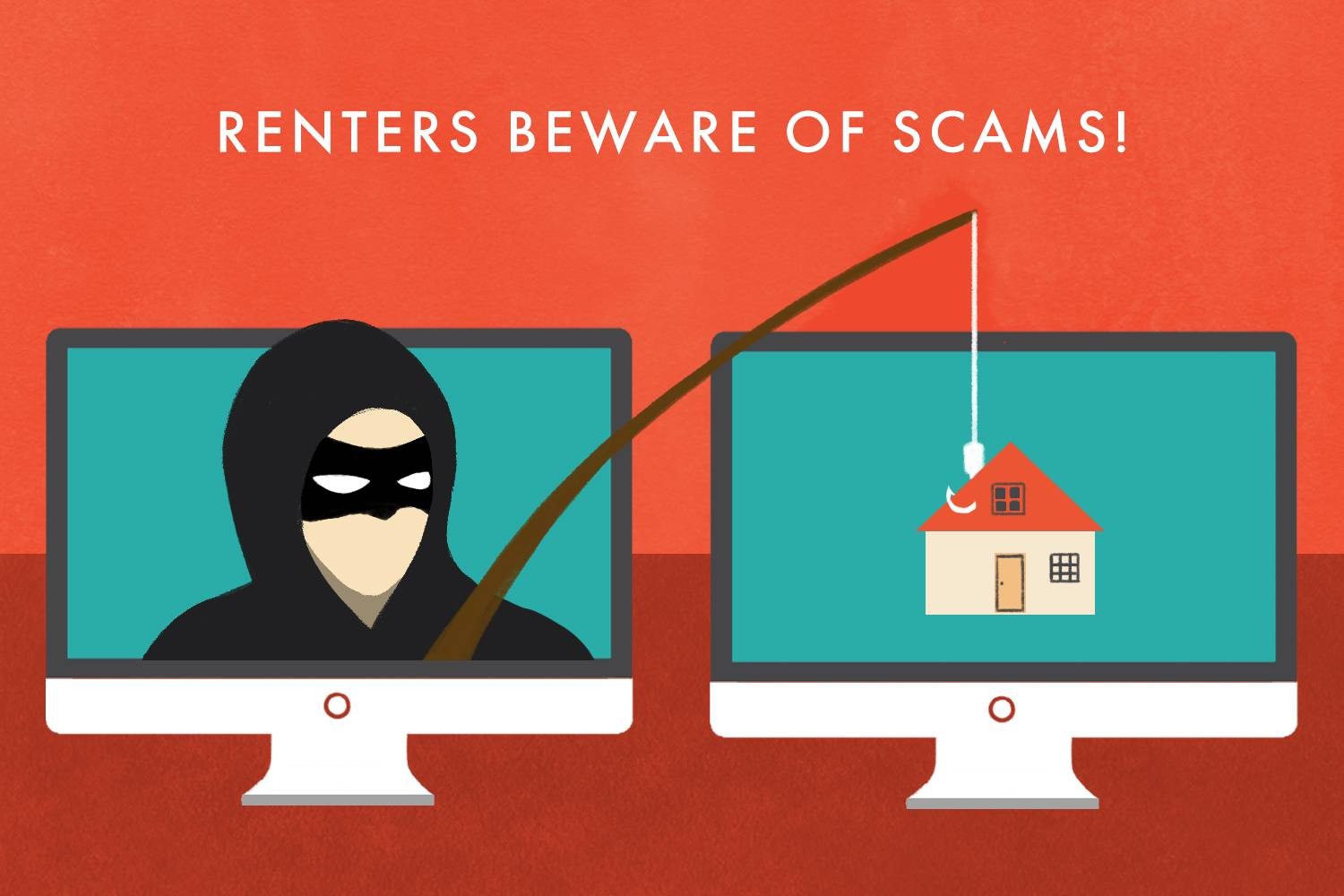Key Takeaways
- Be cautious of “free samples” offers that require payment or personal information, as they may be bait-and-switch tactics scammers use.
- Avoid fake payment requests and overpay scams by verifying the transaction’s legitimacy and never sending money back to a buyer.
- When selling items online, use secure payment methods, meet in safe locations for transactions, and be wary of overpayment or requests for personal information.
- Protect yourself from job search and data entry scams by researching the company, avoiding upfront fees, and being skeptical of high-paying offers with minimal work.
- Stay vigilant against phishing attempts and spoofing by verifying the sender’s email address, avoiding clicking on suspicious links, and not sharing personal or financial information.
- When dealing with package delivery and housing opportunities, verify the offer’s legitimacy, be cautious of upfront payments, and research the company or landlord before proceeding.
Have you ever been tricked by “free” samples and ended up feeling frustrated? Sometimes, free stuff can be a scam. In this post, we’ll talk about how scammers trick people with fake free offers. We’ll learn how to spot these tricks and protect ourselves. Let’s get smart about free sample scams so we don’t get fooled!
Understanding Bait and Switch Tactics

Bait and Switch Defined
The bait and switch technique involves enticing customers with an appealing offer, only to present them with a different, less desirable offer once engaged. This deceptive tactic is commonly used by businesses to lure potential customers into their stores or websites.
Bait-and-switch scams happen in industries like stores, travel, and phone companies. For instance, a store might say they’re selling something really popular for super cheap to get people to come in. But when you get there, the thing is sold out or costs more than they said. Then they try to get you to buy something more expensive.
Examples of Bait and Switch Scams
In the digital age, some companies trick people by offering free samples online but then make them give personal info or sign up for expensive things before getting the samples. Also, hotels sometimes advertise cheap room rates but then say those rooms are unavailable when you try to book.
To avoid falling victim to these tactics:
- Research businesses before making any commitments.
- Be cautious of overly generous offers.
- Read terms and conditions carefully before providing personal information or committing financially.
Recognizing Fake Payment Requests and Overpay Scams

Signs of Fake Payment Requests
Fake payment requests often involve overpayment or an unusual payment method. Scammers may request payment through unconventional channels like gift cards or wire transfers. They might also pressure you to act quickly without giving you time to verify the request’s legitimacy. Discrepancies in the invoice details, such as misspelled company names or incorrect bank account information, can be red flags.
Scammers capitalize on people’s trust and eagerness to secure a good deal by exploiting their desire for free samples. For instance, they might promise a large quantity of free samples but then ask for a small processing fee, eventually leading to more significant payments.
Risks Associated with Overpay Scams
One risk associated with overpay scams is financial loss. If you fall victim to this scam, you could lose money when attempting to process an overpayment that never existed in the first place. Moreover, providing your bank account information in response to these fake requests can lead scammers directly into your finances.
Another risk is potential legal issues if unwittingly involved in fraudulent activities due to processing illegitimate payments from unknown sources.
Tips for Selling Items Online Safely
Importance of Secure Payment Methods
When selling items online, it’s crucial to use secure payment methods to avoid falling victim to free sample scams. Opt for platforms that offer secure payment options, such as PayPal or direct bank transfers. Avoid dealing in cash or accepting checks from unknown buyers, as these can be forged or canceled after receiving the goods.
Consider using an escrow service for high-value transactions. This ensures the payment is securely held until the buyer receives and approves the item. By utilizing these secure payment methods, you can significantly reduce the risk of being scammed by fraudulent buyers when selling items online.
How to Spot Potential Online Buyer Scams
One way to identify potential free sample scams is by recognizing red flags in a buyer’s behavior. Be cautious if a buyer insists on completing the transaction outside of the platform’s secure payment system or requests unusual shipping arrangements. Another warning sign is if they are overly eager to purchase without asking detailed questions about the item.
Furthermore, watch out for suspicious offers where buyers want to overpay and request a refund for the excess amount sent. These tactics are often used in scams involving free samples, where fraudsters aim to exploit sellers’ trust and goodwill.
Protecting Yourself from Job Search and Data Entry Scams

Remote Job Opportunities
When searching for remote job opportunities, be cautious if a company asks for your social security number or any form of payment upfront. Legitimate employers will not require you to pay money before starting work. Another red flag is when the job posting has grammatical errors, promises high earnings with little effort, or lacks a clear job description.
Be wary of unsolicited emails offering work-from-home jobs, especially if they contain suspicious links or attachments. Scammers often use phishing emails to obtain personal information or install malware on your computer.
Data Entry Scams
Data entry scams can involve fraudulent companies that promise high pay for minimal effort. These scams may require you to provide sensitive personal and financial information upfront without a proper interview process. If an offer seems too good to be true and requires immediate action, it’s likely a scam.
Avoid providing your contact details on unverified websites claiming to offer data entry jobs, such as email addresses and phone numbers. Some scammers use these details to send fake job offers via email or text messages to steal your personal information.
Always research the company offering the job and look for reviews from other job seekers who have had experience with them. Legitimate companies will have a professional website and verifiable contact information.
Identifying Phishing Attempts and Spoofing
Characteristics of Phishing Emails and Websites
Phishing emails pretend to be from real companies and try to get you to click on links or give out personal info. They might have mistakes in spelling, use generic greetings, or ask for sensitive data in a hurry. Phishing websites look real but might have small differences in the web address or not be secure. They want to fool people into sharing private stuff.
Phishing attempts can also involve caller ID spoofing. This technique falsifies the information displayed on a recipient’s caller ID to resemble a trustworthy source such as a bank or government agency. It aims to deceive individuals into answering calls and sharing sensitive information over the phone.
How Spoofing Techniques Are Used in Scams
Scammers employ spoofing techniques to create an illusion of legitimacy. By mimicking official communication channels or disguising their true identities through email addresses, phone numbers, or websites, fraudsters attempt to gain victims’ trust and manipulate them into providing personal data.
Scammers use these deceptive methods as part of free sample scams, too. For instance, they might send emails claiming that recipients have won a prize and must provide personal details for verification. Similarly, fraudulent websites offering free samples may request credit card information under the guise of covering shipping costs.
Spotting Package Delivery and Housing Scams

Warning Signs
Scammers often use free sample scams to lure unsuspecting victims. Be cautious of unsolicited emails or text messages claiming that you’ve won a free product without entering any contest. Another red flag is when the sender asks for personal information, such as your credit card details or social security number, to claim the free sample.
Moreover, watch out for housing rental scams where fraudsters post fake listings on popular websites. If a landlord requests payment before allowing you to view the property in person or if they refuse to provide a lease agreement, it’s likely a scam.
Always verify the legitimacy of offers by researching online reviews and checking reputable sites like Better Business Bureau for reported scams.
Confirming Authenticity
To confirm whether a package delivery notification is legitimate, track its origin using the tracking number provided by contacting the alleged courier company directly. Be wary of unexpected customs fees or taxes associated with international deliveries, as these could be part of an elaborate scam.
For housing rental offers, request to tour the property in person before making any payments. Legitimate landlords will allow you to inspect their properties and provide proper documentation before finalizing agreements.
Remember that if something appears too good to be true, it probably is. Always trust your instincts and take extra precautions when dealing with unfamiliar offers.
Recognizing Pyramid Marketing and Investment Schemes
Key Features
Pyramid marketing schemes often promise free samples or products in exchange for recruiting others. They typically require an initial investment to join, focusing on recruitment rather than selling products. These schemes rely on a constant influx of recruits to pay returns to earlier investors, creating a pyramid-like structure.
These organizations use enticing offers like free samples as bait to lure individuals into their network. Once recruited, participants are encouraged to recruit more people to advance through the ranks and earn rewards. However, these rewards are often tied directly to the number of recruits brought into the scheme rather than actual product sales.
Risks Associated
Investment frauds associated with pyramid marketing schemes can lead individuals to lose substantial money. This is especially true for those who join late in the scheme when recruiting enough people below them is difficult or impossible to recover their initial investment.
Many individuals involved in these scams lose money instead of making any profit, which can have serious financial implications for them and their families. Such fraudulent activities harm individual victims and tarnish legitimate businesses operating within similar markets.
Protecting Against Government Official Imposter Scams

Indicators of Scams
Government official imposter scams can be identified by signs such as receiving unsolicited calls or emails claiming to be from a government agency. These scammers often use fear tactics, like threatening arrest or legal action if immediate payment is not made.
Scammers may also ask for personal information, such as your social security number or bank account details. Remember, a real government agent will never demand immediate payment over the phone or threaten you with arrest without proper documentation.
It’s essential to remain cautious when someone claiming to be an official asks for sensitive information over the phone or email.
Consequences and Verifying Identity
Falling victim to these scams can cause severe financial loss and emotional distress. Victims might end up disclosing their social security numbers, which could lead to identity theft and fraudulent activities in their name.
To avoid falling prey to these scams, always verify the identity of individuals claiming to be government officials. You can ask for their full name, employee ID number, and direct contact information. Then, cross-check this information by contacting the relevant agency through its verified website or helpline.
Remember that legitimate government agencies will provide ample opportunity for you to verify their authenticity before taking any action.
Final Remarks
Congratulations! Now you know how to handle online scams. You’ve taken a big step in keeping safe online by learning about scammers’ tricks and how to protect yourself. Remember to stay alert and question anything that seems too good to be true. Whether you’re selling stuff, looking for a job, or considering investing, always check before doing anything. Being careful will help you avoid falling for these tricky schemes.
Now that you’re armed with these insights, spread the word. Share this information with friends and family to create a network of informed individuals who can collectively combat online scams. Together, we can make the digital world a safer place for everyone.

